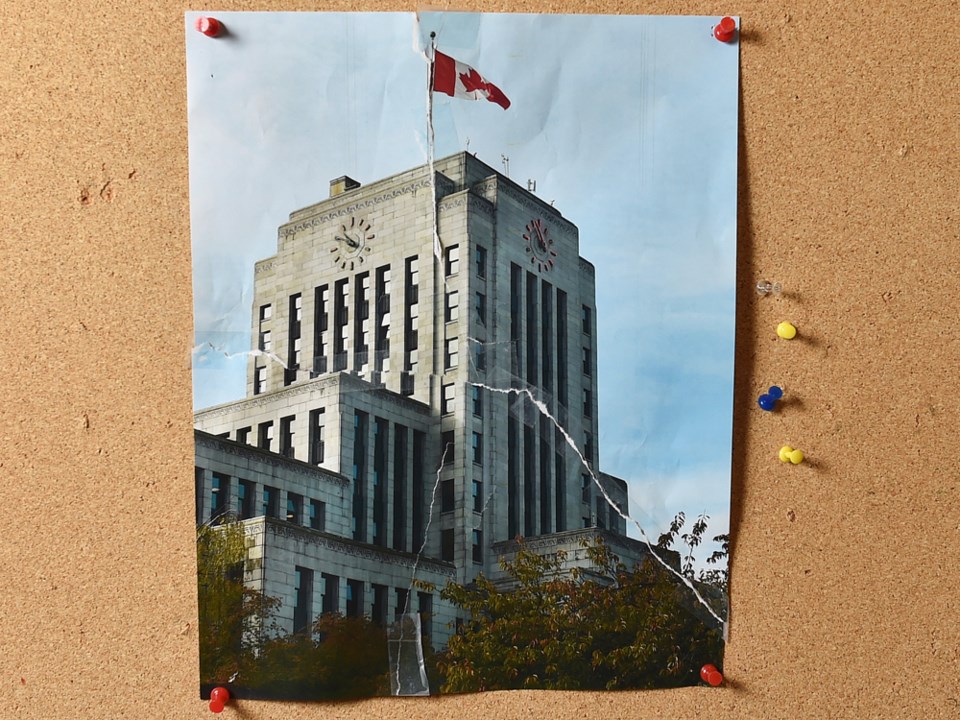Take a moment to pity your city councillors.
After knocking on thousands of doors, turning up at every citywide event they could possibly squeeze into their schedule, while soliciting donations from everyone they know, and foregoing time from their families and from making a living, all in the hope they will serve you, they are now being tasked with approving a $1.5-billion budget mere weeks after taking office.
But what鈥檚 the rush? The fiscal year begins April 1, and provided the city has provisional spending power, council does not have to finalize the budget immediately.
Council can and should ask some tough questions about spending priorities established by Vision Vancouver, the now decimated elector organization.
Of course, council should provide firm direction to staff as soon as possible. No one is proposing the curtailment of core municipal services such as libraries, community centres, waste management or permitting.
We have just been through what is widely deemed as a change election, yet the majority of the budget decision-making took place before council was sworn in.
Since taking office, councillors have been lobbied mightily by many city departments such as firefighters and police, who arranged for equipment demonstrations and ride-alongs, to make sure the sizable public safety budget remains intact.
Last year, Vancouverites got their largest property tax increase in memory at 4.5 per cent. It will be a miracle if the next increase is below five per cent. Some are predicting a tax increase coming in at over six per cent.
Part of the increase will be attributed to the Employers Health Tax established by the provincial government. Naturally, the city would love to blame outside forces for the cost increases.
Another spike in property taxes is due to ballooning costs for water, waste and sewer utilities passed down by Metro Vancouver, whose own profligate spending has made headlines.
After sewer and water infrastructure upgrades, the second largest line item on the city鈥檚 capital plan is now affordable housing. It was not so long ago the city was not in the housing business at all. Social housing has traditionally been the bailiwick of the provincial government and the regional district.
New spending on housing initiatives has put downward pressure on other funding priorities, such as street cleaning. The park board budget has also dropped as a percentage of the city鈥檚 spending for several years.
The city鈥檚 move into a district heating energy program is almost guaranteed to drive up the cost of hot water and home heating in affected neighbourhoods. District energy is one of many programs wrapped inside the city鈥檚 Greenest City plan.
The Greenest City Action Plan is another budget item that deserves real scrutiny by this council. Are the actions set out at the start of the decade still delivering on greenhouse gas emission decreases and waste reduction? If not, then scrap them.
The 麻豆传媒映画Economic Commission (VEC) is a costly $3-million endeavour with dozens of staff and largely unknown outcomes. This office was once led by a handful of business-savvy advisers, running on a comparatively lean six-figure budget.
It is astounding that the VEC has little interaction with groups such as the Greater 麻豆传媒映画Board of Trade or the B.C. Business Council. Its Vancouver-only focus has meant that opportunities for working across municipal boundaries have not been explored either.
The VEC needs a complete re-think.
We have read about Vancouver鈥檚 gargantuan communications office with somewhere north of 40 full time employees. Council must ask if the city can get by with less.
Another budget that has skyrocketed over the past decade has been the one for the mayor鈥檚 office. The previous mayor never seemed to lack for funds to take meetings in New York or Paris, or hire consultants. The mayor鈥檚 office discretionary budget is an eye-popping $700,000.
There is a motion tabled by Coun. Lisa Dominato to review the mayor鈥檚 office budget, which one hopes will get the support of her peers.
With only four opportunities to shape the city鈥檚 budget, it is hardly fair to expect this council to rush their vote.
As part of their fiduciary duty, council should take the time to put their own stamp on the budget, and the city鈥檚 priorities.



